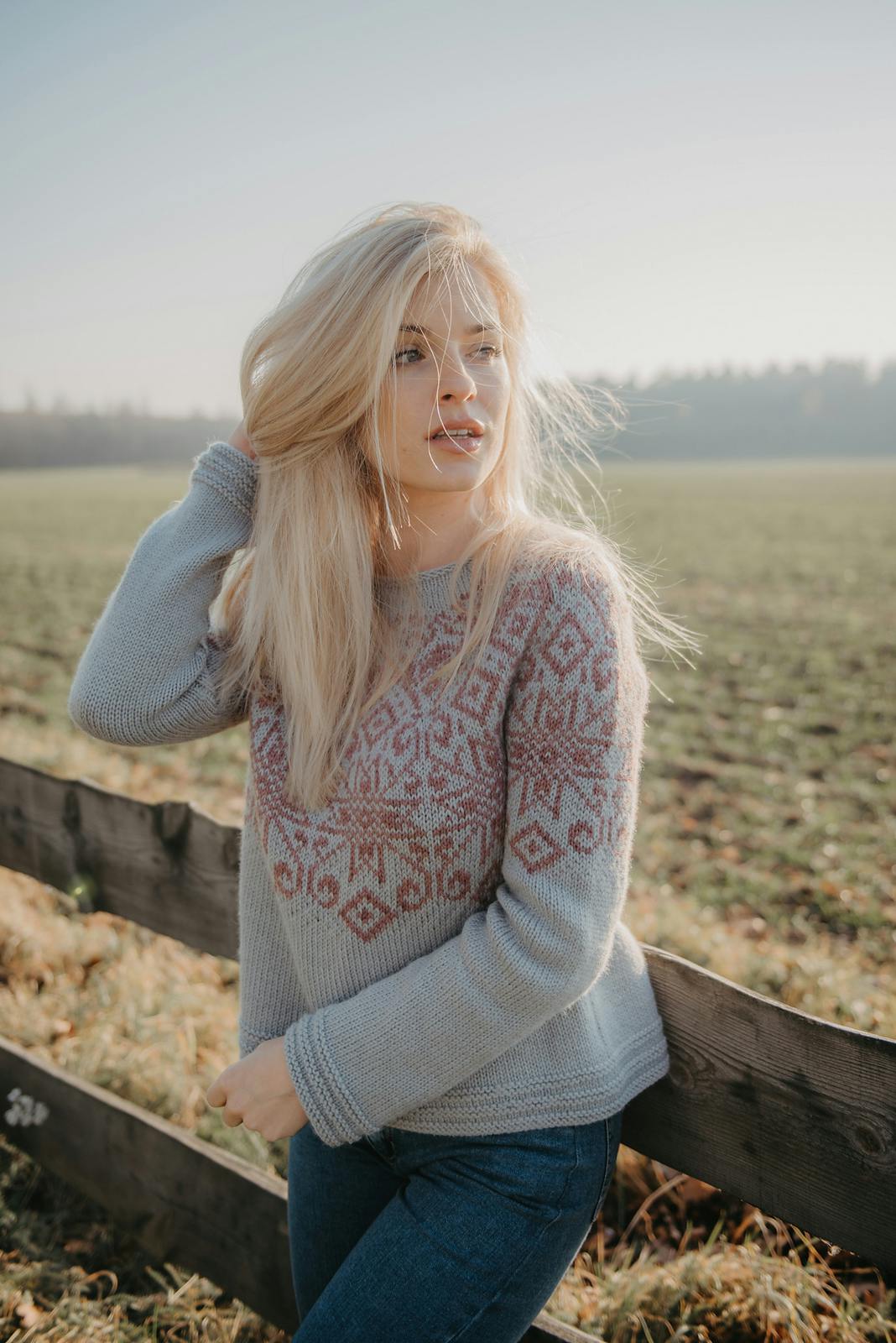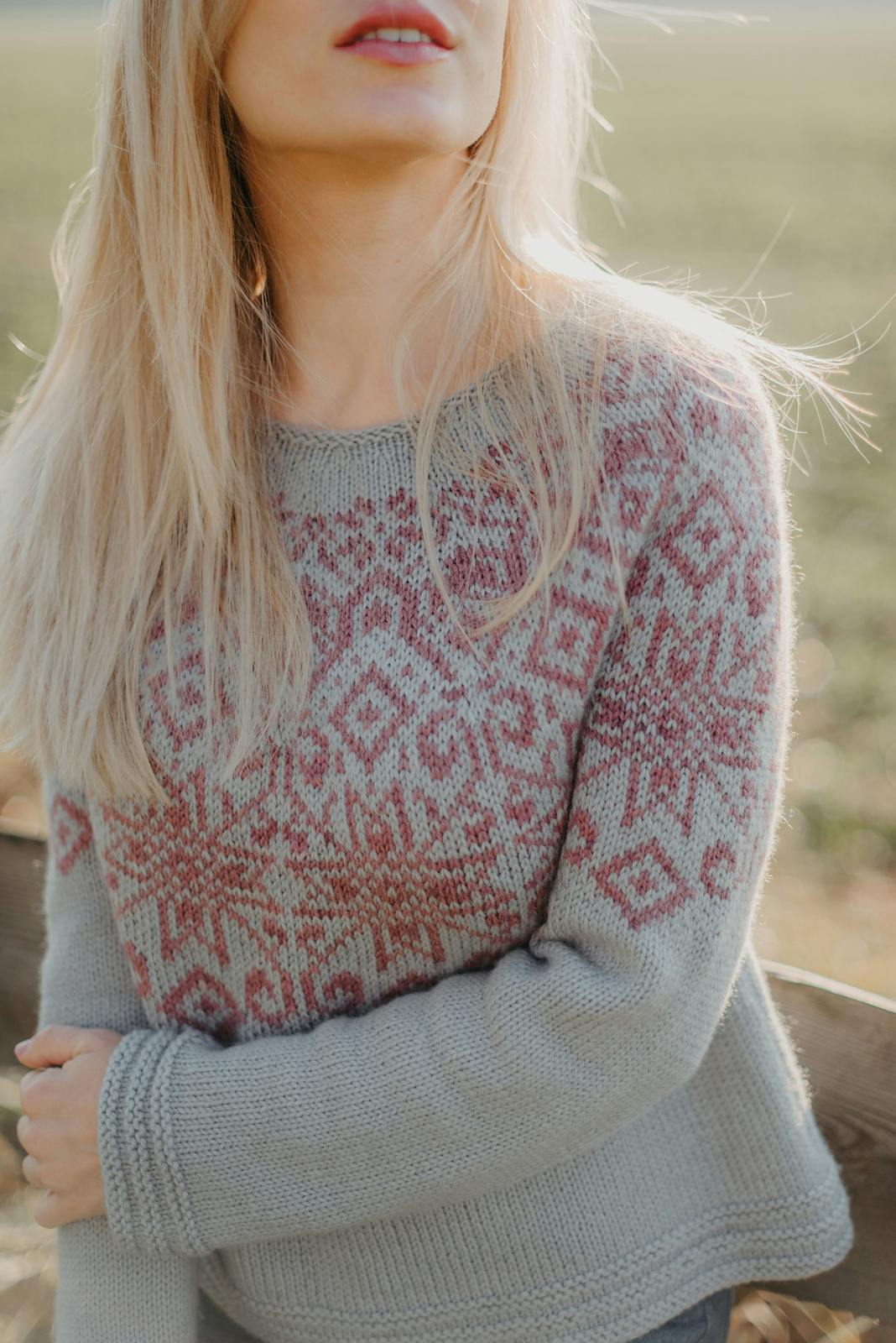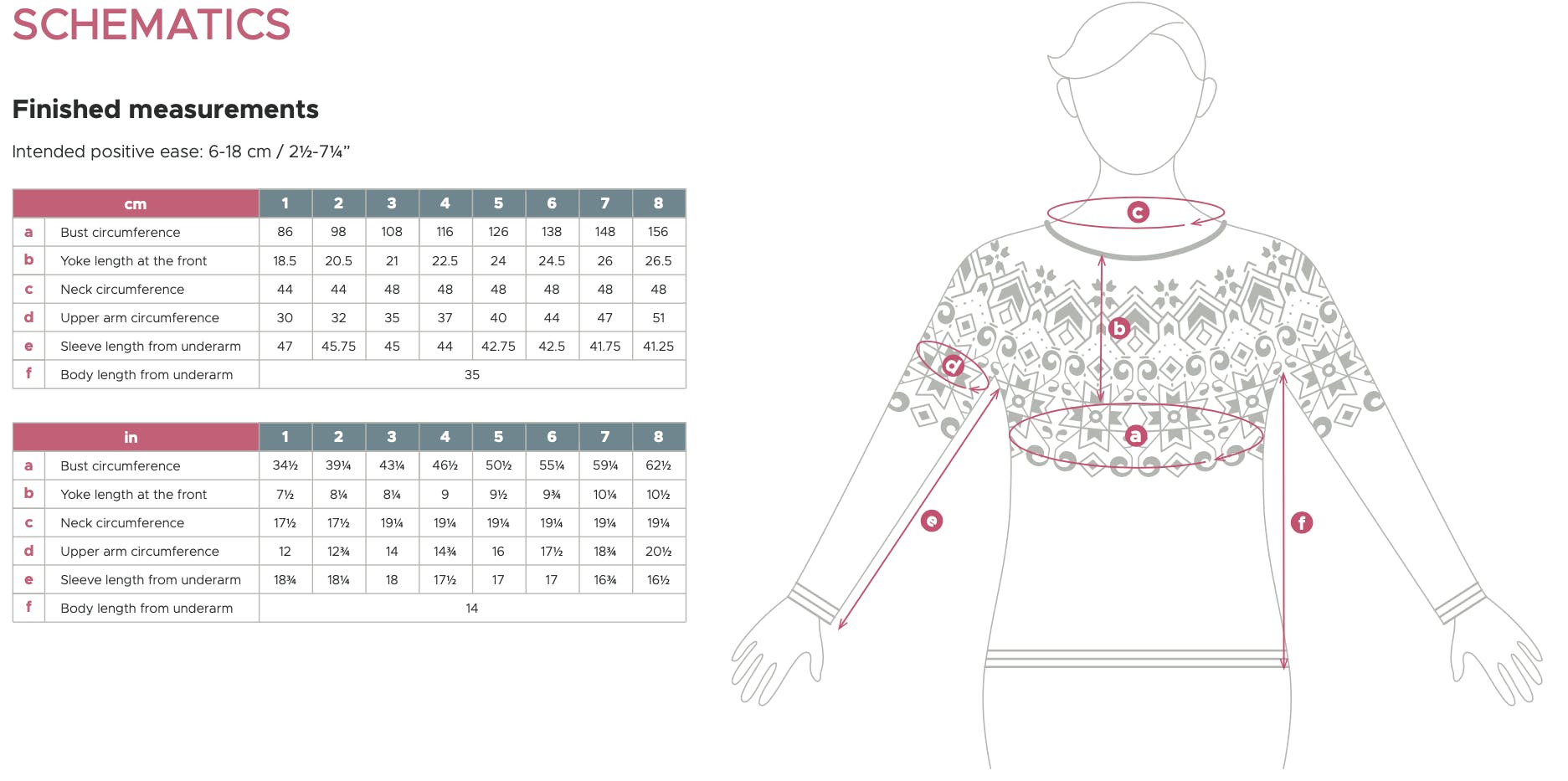Starry Dawn
Description
Starry Dawn is top-down round yoke sweater that features deep-running colourwork, inspired by the sign of Auseklis in Latvian mythology.
Auseklis is a Latvian pagan God of the dawn; many folk songs talk about a celestial wedding in which he is the groom of the daughter of the sun.
Auseklis symbolises the first star that appears in the morning on the east side of the sky, the sign of light defeating dark. Latvians believe that starry patterns have a magical meaning - they protect you from all evil.
Finished bust circumference:
- 86 (98, 108, 116, 126, 138, 148, 156) cm
- 34½ (39¼, 43¼, 46½, 50½, 55¼, 59¼, 62½)“
Designed to be worn with 6-18 cm / 2½-7¼” positive ease around the bust, to fit busts with circumference:
- 70-80 (80-90, 90-100, 100-110, 110-120, 120-130, 130-140, 140-150) cm
- 28-32 (32-36, 36-40, 40-44, 44-48, 48-52, 52-56, 56-60)“
Tag on social media with #starrydawn
Note: The product sold here is a knitting pattern in a PDF format and not the finished sweater.
Languages
- English
Sizes
1 (2, 3, 4, 5, 6, 7, 8)
Yardage
Main colour:
- 610 (670, 735, 795, 860, 940, 1005, 1070) m
- 665 (735, 805, 870, 945, 1025, 1100, 1170) yds
Contrasting colour:
- 200 (220, 235, 250, 265, 285, 295, 310) m
- 220 (240, 260, 270, 290, 310, 325, 340) yds
Yarn in sample
Yarns used in sample (size 2) is Dinas Home of Crafts 100% Corriedale DK (100% Corriedale, 225 m/100 g): 3 skeins in Dove colourway as the main colour and 1 skein in Brown rose colourway as the contrast colour.
Yarn weight
DK
Suggested needles
- 4 - 4.5 mm (US 6 - 7) circulars 60 cm / 24” and/or DPNs for small circumference knitting.
Pattern Category
Sweater
Difficulty
Intermediate
Gauge
20 sts & 26 rows = 10 cm / 4''
Pattern for gauge
Stockinette stitch and colourwork in the round, blocked.
Notions
Stitch markers, row counter, stitch holder, tapestry needle, measuring tape.
Techniques used
Backwards loop cast-on, trapping floats, short rows.
Notes
The sweater is worked seamlessly in the round from the top down. To avoid tension tightening when working colourwork, it is important to keep the floats on the backside of work somewhat loose.


